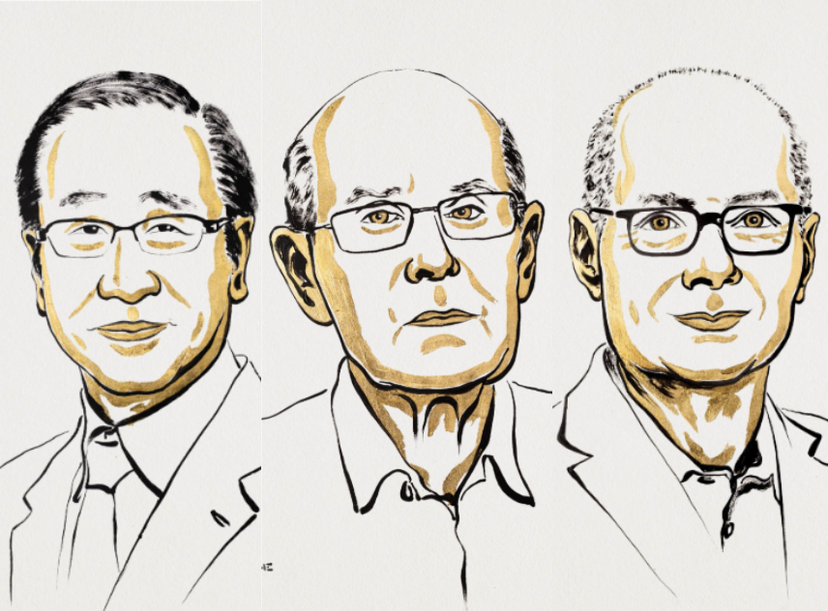2025 Nobel Chemistry Prize recognizes Susumu Kitagawa, Richard Robson and Omar M. Yaghi
A pioneering achievement in the development of metal-organic frameworks earns chemistry’s most prestigious award
8 Oct 2025

(Left) Susumu Kitagawa, (centre) Richard Robson, (right) Omar M. Yaghi
The Royal Swedish Academy of Sciences has awarded the 2025 Nobel Prize in Chemistry to Susumu Kitagawa, Richard Robson and Omar M. Yaghi for their pioneering work on metal–organic frameworks (MOFs), a groundbreaking contribution that is reshaping the field of modern material chemistry. The Nobel Prize, established in 1901 in accordance with Alfred Nobel’s will, remains one of the most prestigious honors in science, recognizing individuals whose discoveries have profoundly advanced human knowledge and well-being.
Kitagawa’s contribution focused on foundational work in MOF synthesis and characterization, Robson explored the early conceptual framework and structural design of MOF, and Yaghi expanded the field by creating new MOF architectures and demonstrating their practical application. These achievements stand out for their ability to offer surface area and tunability for applications including separating PFAS from water, breaking down traces of pharmaceuticals in the environment and capturing carbon dioxide from desert air.
Over the past three years, the Nobel Prize winners in Chemistry have honoured breakthroughs that span computational biology, nanotechnology, and chemical biology.
In 2024: David Baker, Demis Hassabis, and John Jumper were recognized for advances in computational protein design and protein structure prediction.
In 2023: The award went to Moungi Bawendi, Louis Brus, and Aleksey Yekimov for their discovery of quantum dots.
In 2022: Carolyn Bertozzi, Morten Meldal, and K. Barry Sharpless were celebrated for developing click and bioorthogonal chemistry, tools that revolutionized molecular modification in living systems.
As the scientific world celebrates this year’s Nobel Prize in Chemistry, it serves as a powerful reminder of the discipline’s capacity to drive innovation and address global challenges. From developing vaccines and pharmaceuticals to managing environmental pressures, chemistry continues to evolve at the intersection of curiosity and impact. With each discovery, the field moves closer to unlocking solutions for health, energy, and the environment, shaping a future defined by collaboration, creativity, and transformative science.
